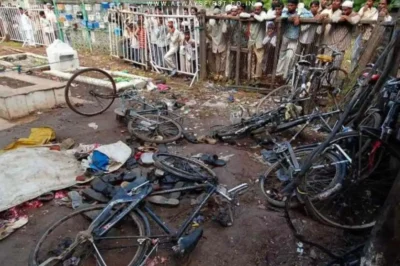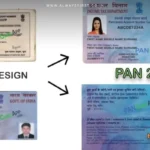Key Highlights:
✔ All 7 accused, including Pragya Thakur & Lt Col Purohit, acquitted due to lack of conclusive evidence.
✔ Court orders ₹2 lakh compensation for victims’ families, ₹50,000 for injured.
✔ Prosecution failed to prove conspiracy, motorcycle bomb link, and call interceptions were unauthorized.
Court Acquits All Accused in 2008 Malegaon Blast Case
Nearly 17 years after a deadly bomb blast ripped through Maharashtra’s Malegaon, killing six and injuring over 100, a special court in Mumbai delivered a stunning verdict—acquitting all seven accused, including former BJP MP Pragya Singh Thakur and Lt Col Prasad Purohit.
The court ruled that while there was “strong suspicion” against the accused, the prosecution failed to provide concrete evidence to secure a conviction. Special Judge A.K. Lahoti emphasized, “Terrorism has no religion. No religion advocates violence.”
Why Were They Acquitted?
The prosecution’s case crumbled due to multiple lapses:
- No proof that the bomb was planted on the alleged motorcycle.
- Conspiracy meetings and planning not established.
- Call interceptions used as evidence were unauthorized, making them inadmissible.
- Over 40 witnesses turned hostile, with some alleging coercion by investigators.
Judge Lahoti noted that while the blast itself was proven, the link to the accused remained unverified, leading to their acquittal on charges of murder, conspiracy, and UAPA violations.
Compensation Ordered for Victims
In a significant move, the court directed the government to pay ₹2 lakh to the families of the deceased and ₹50,000 to the injured. The detailed order is yet to be released.
A Case Marred by Delays & Controversies
The 2008 Malegaon blast, which occurred during Ramzan in a predominantly Muslim area, was initially probed by the Maharashtra ATS, which suspected Hindu extremist involvement. The NIA later took over, dropping stringent MCOCA charges and highlighting flaws in the ATS investigation.
Over 300 witnesses were examined, but delays, hostile testimonies, and lost forensic opportunities weakened the case. The defense argued that the prosecution relied on unreliable technical evidence, including disputed call records.
What’s Next?
With the acquittal, the legal battle ends for the accused, but questions linger over the investigation’s handling. The verdict underscores the judiciary’s principle: “Suspicion alone cannot replace proof.”
For AlwaysFirst, this is a developing story—stay tuned for updates.









































Leave a Reply